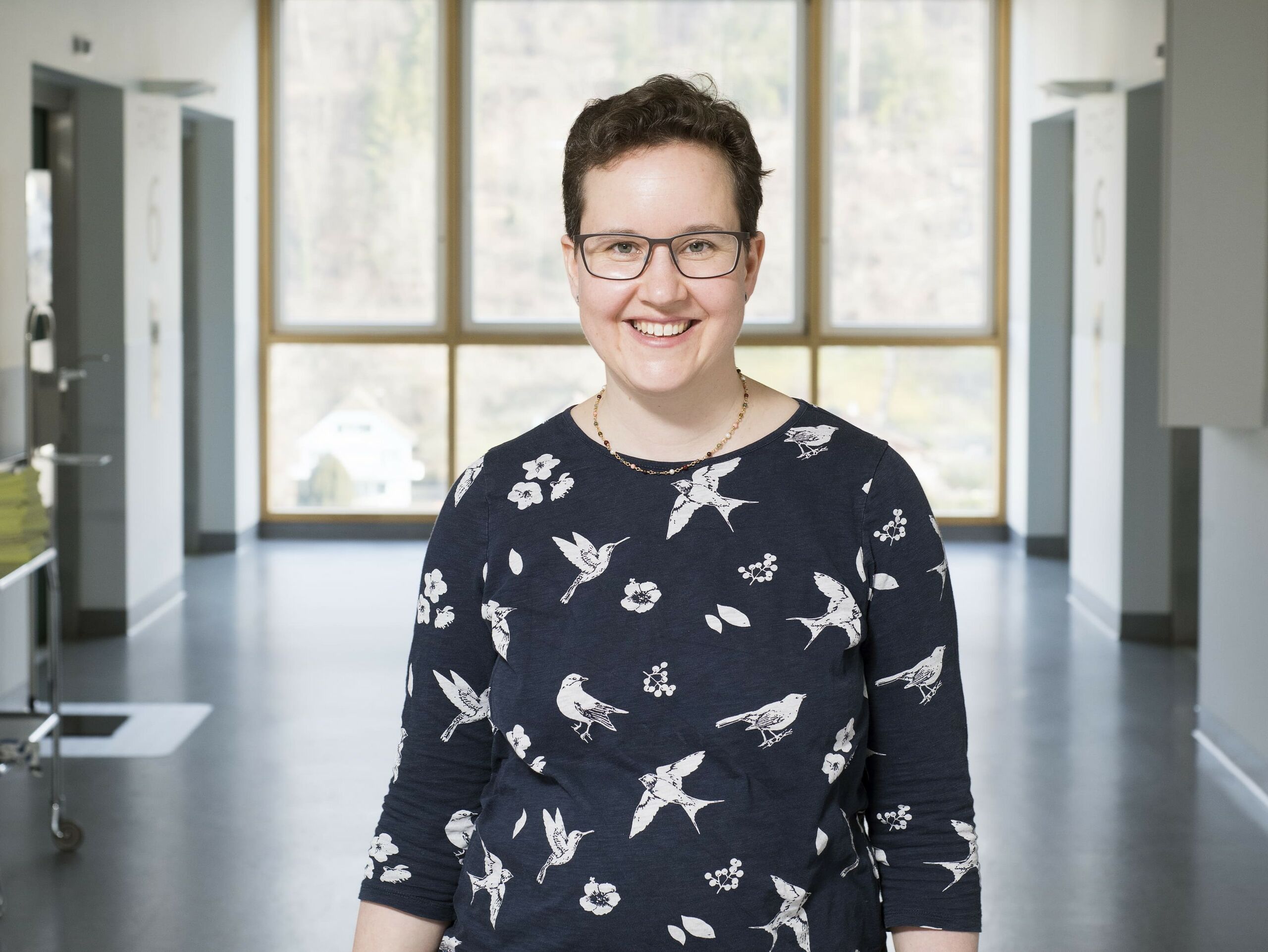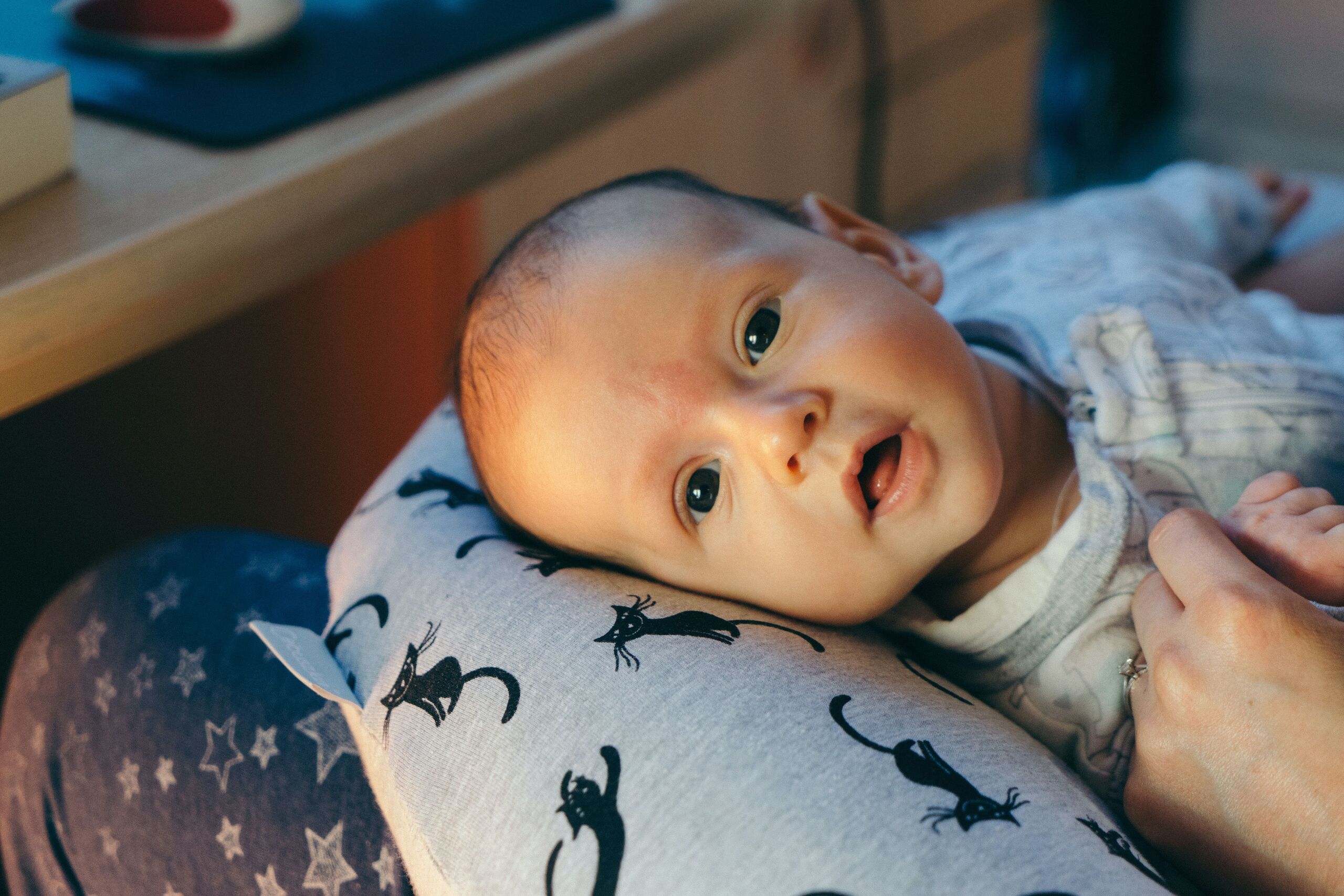“My work begins with the very first contact when a child has been diagnosed with cancer”
Eva Maria Tinner, MD, paediatric oncologist and haematologist at Bern University Hospital

“When I first meet people and tell them what I do, they are often shocked at first to hear that I work as a paediatric oncologist. They cannot even begin to imagine how I can “cope” with being confronted with so many tragedies on a daily basis. But, I realised early on in my training that being the best possible doctor I can be means getting to know the children and their families well and gaining their trust. And I am so motivated when I see that my support can make difficult situations more bearable and increase the quality of life of my patients and their families. My work begins with the very first contact when a child has been diagnosed with cancer.”
“The diagnosis can provide some clarity, even though it is naturally terrible and initially pulls the rug out from under the family’s feet. First, I explain the results of the examination that led to the diagnosis and show the first steps of treatment so that the parents and the patient no longer feel so helpless. We doctors often start explaining things to people before we know the diagnosis in detail. For example, when a child has leukaemia but it is still unclear exactly what type it is. As soon as we have all the relevant information and know exactly what form the treatment will take, we talk to the parents, if at all possible in the presence of a psycho-oncologist and a nurse. We give an overview of the entire therapy, explain what exactly happens in the first phase, what side effects can occur and what to look out for. Naturally, the most difficult conversations are those where you have to explain a very poor prognosis or when it becomes clear that our therapy is not sufficient to defeat the disease. In these cases we cannot offer cure as a hope, but instead have to talk about alleviating the symptoms and maintaining the quality of life from the very beginning. It is extremely important that I can convey to the families that I am not clueless or anything and that our team will not leave them in the lurch. Together with the parents and the child, I work out a care network that will allow the child to stay in his or her familiar environment if at all possible without having to suffer severe symptoms. The families affected can contact me at any time if something is troubling them or if they notice that their child needs extra help. Again, one of the main goals here is to make parents feel less helpless. In this way I can help to make whatever time the patient has left as good as possible.”
“Fortunately, thanks to medical advances, we can now cure more than 80 per cent of our patients, but even for children with good chances of recovery, a diagnosis of cancer is still a great burden. A child diagnosed with cancer usually has to go to hospital for at least two weeks immediately after diagnosis. Normally, it is the case that a parent or a very close caregiver is always with the child. This is especially important for very young children. When our patients are allowed to go home again, they must continue to receive very attentive care. For parents, this means that they have to transform themselves from medical laymen into specialists within a very short time, for example when it comes to injecting medication under the skin and making, or at least having a part in, very complex decisions. During intense therapy phases, a child has to be hospitalised again, and that is also the case for chemotherapy or radiation. In addition, complications such as infections can occur because a child’s immune system is weakened. Then a child usually has to go to hospital for an indefinite period of time. These are just a few examples that illustrate why parents have to completely change their normal lives when their child has cancer. Often it is too much for them to spin all the individual plates, especially if they both work and there are brothers and sisters who might otherwise get left out. Then a parent may be forced to reduce or give up work altogether, at least during the intensive phase of therapy.”

“The situation is overwhelming, especially when they are first confronted with the news of the disease and suddenly have to start coping with an everyday situation. These are exceptional circumstances for both parents and child. That is why it is important to take one step at a time and also accept help. To support parents and children, we work closely together with psycho-oncologists and social workers. Parents are often unsure about therapies and possible alternatives, partly because there is a lot of confusing information about cancer online. Here I would certainly advise that parents ask us doctors which sources of information are trustworthy and actually suit the child’s diagnosis. Parents’ health is also important and they should not be afraid to ask for help and time out for themselves and for the two of them as a couple. Cancer treatment is a marathon, not a sprint, so parents have to make sure they don’t burn out completely so they can be there for their child all the time. Often parents can cope pretty well in the intensive phase, but then fall into a psychological hole at the end of therapy. Again, I would advise those affected to seek help from professionals.”
“The intensive phase of therapy usually lasts between six and twelve months. This time is marked by planned and unplanned hospital stays and the constant fear that the child will not survive. For some types of cancer, such as acute lymphoblastic leukaemia, which is one of the most common childhood cancers, treatment lasts two years because it also involves a milder maintenance therapy. After that, there are check-ups, initially close together and later with longer intervals in between. These can trigger renewed anxiety in both children and parents. If you have a child with cancer, you are constantly worried, for example about infections at school that can be life-threatening for a child with cancer, including diseases that can be prevented by the recommended vaccinations, such as measles.”
“Depending on the type of diagnosis, it takes five to ten years before a child is considered cured after therapy. Unfortunately, this does not mean that a child is completely healthy. The cancer itself and especially the aggressive therapy leave traces that can endanger health for life. Together with dedicated internal specialists, I was able to set up follow-up care consultations for adults who had cancer as children or adolescents at the Baselland cantonal hospital and later at Bern University Hospital. These consultations help me see what our paediatric oncology work has achieved. I am all the more pleased to meet so many adults who have found their way despite the setbacks and blows of fate they have suffered. We take their concerns very seriously and they are given important information about how they themselves can take care to maintain and promote their health as well as possible.”